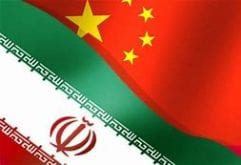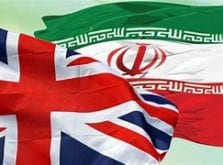RFL/RE – The visiting head of the United Nations’ nuclear watchdog has warned in Tehran of outstanding issues as time runs out to revive a 2015 nuclear deal crippled by a U.S. pullout and Iran’s retreat from compliance, with both sides warning it will take months to clear the obstacles.

International Atomic Energy Agency (IAEA) Director-General Rafael Grossi emerged from meetings with Iranian officials on March 5 saying he had had a “very fruitful exchange” but that there were “still matters that need to be addressed” by Iran.
Grossi told a press conference it was “clear” that a number of crucial differences still need to be resolved “together.”
He suggested joint work with Tehran to resolve the issues would continue for three or four months.
Iranian media quoted officials there as saying Tehran had agreed to “present documents to the IAEA to close remaining issues.”
Multiple rounds of talks including U.S. and Iranian negotiators have been held in the Austrian capital over the past year to reach a new agreement to replace the so-called Joint Comprehensive Plan of Action (JCPOA) exchanging curbs on Iranian nuclear activities for sanctions relief.
Grossi was scheduled to meet in Tehran with the head of Iran’s Atomic Energy Organization, Mohammad Eslami, and later with Foreign Minister Hossein Amir-Abdollahian.
Eslami emerged from his meeting with Grossi saying he hoped Tehran’s cooperation with the IAEA would not be “politicized.”
Iranian state TV quoted Eslami as saying he was “very optimistic” of a resolution of nuclear issues with the IAEA.
But Eslami said it was decided in the meeting with Grossi “to exchange the necessary documents between Iran and the IAEA” by the end of the Iranian month of Khordad on June 21, according to Iranian Press TV.
Grossi said before his trip that it is “a critical time but a positive outcome for everyone is possible.”
A quarterly IAEA report saying Iran has sharply increased it stockpile of enriched uranium of a purity allowing its quick processing to create weapons has added urgency to the negotiations.
Russian envoy and talks mediator Mikhail Ulyanov tweeted on March 3 that negotiations were “almost over.”
The next day, his French counterpart Philippe Errera urged a quick return to talks “because we are very, very close to an agreement.”
Iran signed the JCPOA with the United States, Britain, France, German, Russia, and China, plus the European Union.
On March 4, Russian Foreign Minister Sergei Lavrov said in connection with the rollout of massive financial and other sanctions over the war in Ukraine that Moscow would insist on “written guarantees at the minimum level of secretary of state” before backing a new nuclear deal with Iran.
He said such guarantees should ensure “that the current [sanctions] process launched by the U.S. will not in any way harm our right to free, fully-fledged trade and economic and investment cooperation and military-technical cooperation with Iran.”
 Shabtabnews In this dark night, I have lost my way – Arise from a corner, oh you the star of guidance.
Shabtabnews In this dark night, I have lost my way – Arise from a corner, oh you the star of guidance.



